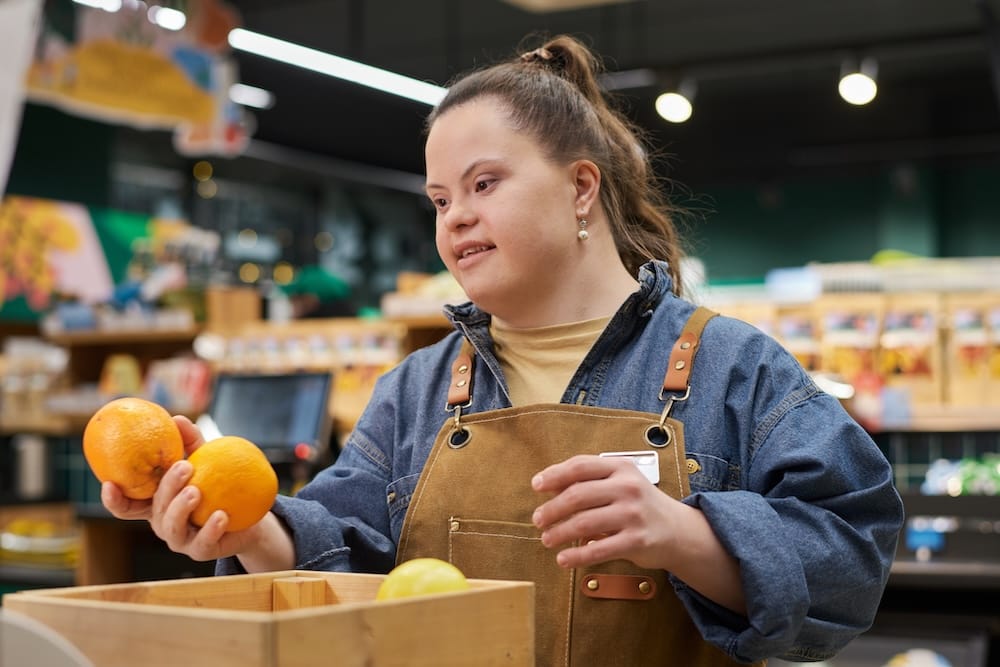When the negative news feels like it’s all around, seeking out some positive light can remind us that there’s good in the world, too – and that’s something to hold on to. Here are 32 uplifting and enlightening stories from the past year to show us that it’s not all doom and gloom
1. A world-first study, led by researchers from the University of Nottingham and published in World Psychiatry, revealed that reading about other people overcoming their mental health struggles can be an effective tool to help others in similar scenarios. The study involved participants with mood, stress and anxiety disorders, having access to a digital library of mental health stories in varying formats – including poetry, prose, graphic novels, audio, video, written, and image-based. Over the course of a year, participants could turn to the library and materials as much as they liked, with results recording a notable increase in quality of life, along with a perception that their life had meaning. Additionally, the research was highlighted as being cost-effective enough to use throughout the NHS.
2. 55-year-old janitor Richard Goodall, from Indiana, won America’s Got Talent and the $1 million prize! This true underdog story shows how we should all chase our dreams – you never know how they could play out.
3. A company in Japan has begun selling the world’s first ‘horizontally recycled nappies’. This means they are produced from the same item that was recycled, AKA nappies into new nappies – but don’t worry, they go through sterilisations, bleaching, and deodorising to ensure they meet hygiene standards – and are available for both babies and older adults.
4. From April, the NHS in England rolled out ‘Martha’s Rule’, a scheme allowing seriously ill patients the opportunity to get a second opinion if their condition deteriorates. The project has government backing, and initially will be available to around 100 hospitals, following a campaign by the parents of 13-year-old Martha Mills, who died after her symptoms of sepsis were missed.
5. In an impressive crackdown on crime, East Palo Alto, in California, which was known as the ‘murder capital’ of the US in the 1990s, recorded zero homicides in 2023. Back in 1992, the 2.5 square-mile city recorded 42 homicides – a higher rate per capita than any other city – but now it’s believed that this turnaround in the city’s safety has significantly increased for several reasons, including time, investment in youth programmes and community policing, along with more job opportunities.
6. In a win for gender equality, the Paris Olympics featured the same number of male and female athletes, for the first time in history!

7. While there can feel like a lot of doom and gloom, the Gallup Global Emotions Report 2024, which surveys intangible elements of life such as emotions, found that positive feelings reached a score of 71 out of 100 across the world – the highest since the start of the pandemic – and noted that ‘negative emotions’ had dropped for the first time since 2014.
8. The EU committed to combat violence against women with a new law requiring all EU countries to criminalise online harassment, forced marriage, and female genital mutilation.
9. The EU has pledged €3.5 billion to go towards reducing marine pollution, and promoting ocean sustainability.
10. A ‘biodiversity credit scheme’ launched in England to force new building projects, for houses and roads, to ensure that they benefit rather than damage nature. Becoming a law for all sites in April, the idea is that development projects must reach a 10% net gain in habitats. So, for example, if a road cuts through a wild meadow, they would have to recreate this either on site or at another location.
11. From 1 January 2024, composting became mandatory in France for households and businesses.
12. South Korea passed a bill banning the production and sale of dog meat.
13. 91-year-old Cecil Farley, from Surrey, has received the first artificial cornea in England.
14. India confirms a plan to replace its current ‘minimum wage’ with a ‘living wage’ by 2025.
15. Greece became the first Orthodox Christian nation to legalise same-sex marriage.

16. As of May, all North East Ambulance Services vehicles have been equipped with iPads which have the SignVideo app downloaded, in order to ensure emergency service workers can communicate with both deaf and British Sign Language patients. First responders can utilise a video interpreter on the 24/7 app to help convey treatment plans, along with getting a better understanding of the patient’s situation.
17. The UK election in July officially created the most ethnically diverse parliament ever, with the global majority making up 13% of the House of Commons – an increase from 10% at the last election in 2019.
18. Plans are in place for drones from China to remove rubbish from Ama Dablam, a 6,812m high mountain in Nepal this autumn, before moving on to Everest next spring. Estimates suggest each drone could carry 234kg of waste in an hour – a task that would take 14 porters six hours!
19. Having a strong, loving support system is vital in the years following the birth of a child, and parents in Sweden are able to make the most of that support as recent policy reform means that they now have the option of transferring paid parental leave days to people who are not the legal guardian, including grandparents and friends.
20. The average lifespan of someone with Down Syndrome has increased drastically, from 25 years in 1983 to about 60 years today, according to the Global Down Syndrome Foundation.

21. Solar power outperformed coal for the first time ever in Texas in March, producing 3.26 million megawatt-hours (MWh) to coal’s 2.96 million MWh.
22. A 2024 study in PLOS One has revealed that several EU countries have hit some of their 2030 sustainability goals already, including Sweden, Denmark, Estonia, and Austria.
23. Cape Verde, in Africa, was officially declared malaria-free for the first time in 50 years by the World Health Organization, after not reporting a single case of local transmission in three years.
24. Coldplay recently confirmed that their target to reduce their tour carbon footprint by at least 50% has been smashed! Using inventive eco ideas, such as kinetic dancefloors generating electricity from fans, and utilising trains to transport the band, the group has cut CO2 emissions from the first two years of their tour by 59%.
25. A study from the Institute of Cancer Research, London, and The Royal Marsden NHS Foundation Trust, has found that at-home saliva tests may be more effective at detecting men at a higher risk of prostate cancer than a typical blood test. In particular, the saliva tests featured fewer false positives, and were able to detect more aggressive cancers.

26. A new device has been approved by the FDA, which can stop bleeding from wounds in a matter of seconds – and could be of particular help in treating gunshot wounds. Cresilon’s Traumagel is essentially a syringe filled with an algae and fungi-based gel, and has been approved for use on moderate to severe bleeding.
27. The Federal Ministry of Health in Germany has presented a national suicide prevention strategy, with the aim of overcoming taboos around the subject, along with providing more targeted support and prevention services.
28. Clackamas County, in Oregon, announced that homelessness has been reduced in the area by 65% from 2019 to 2023.
29. A bi-annual injection against HIV has been found to be 100% effective in a Phase 3 trial by pharmaceutical giant Gilead. The study of around 2,000 women proved successful, with hopes that lenacapavir for PrEP could be available in late 2025.
30. A bill, referred to as ‘a ban on book bans’, was introduced in the Minnesota Senate in an effort to prohibit censorship in public and school libraries.

31. A new breakthrough treatment for Alzheimer’s disease could be as simple as a nasal spray. It targets the build up of tau proteins in the brain, which can be harmful in neurodegenerative disorders as chemical changes in the brain can cause these proteins to combine into ‘neurofibrillary tangles’, which disrupt brain function and can lead to cognitive decline.
32. Major healthcare reform is on the way in Canada, as the country looks to offer free contraception to 9 million women of reproductive age.


Comments